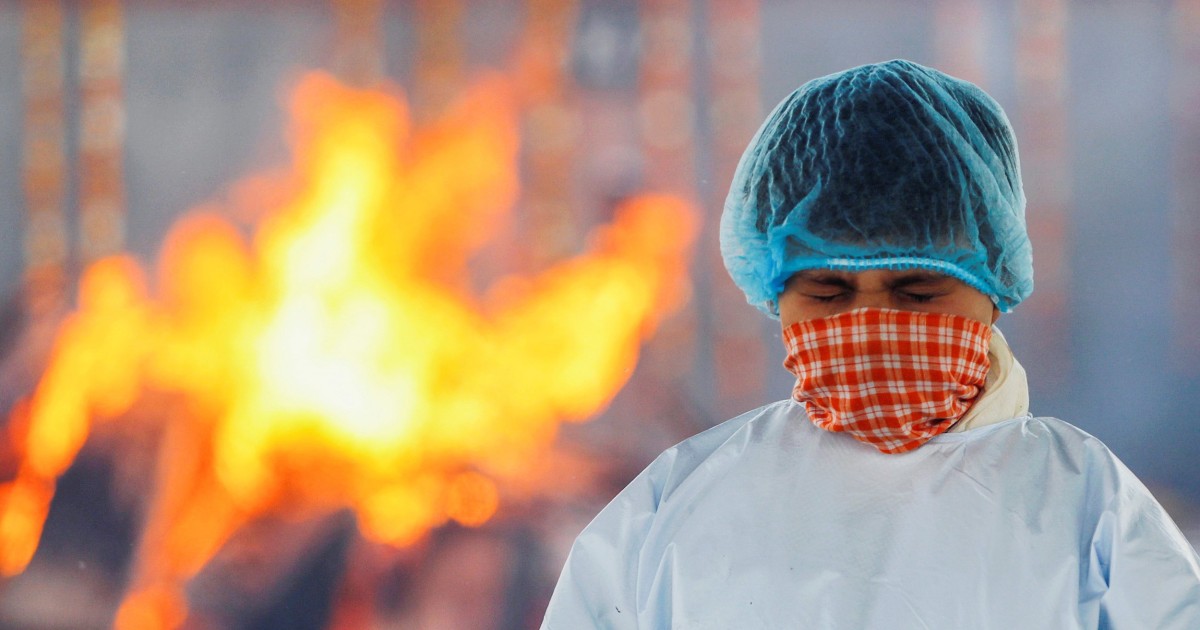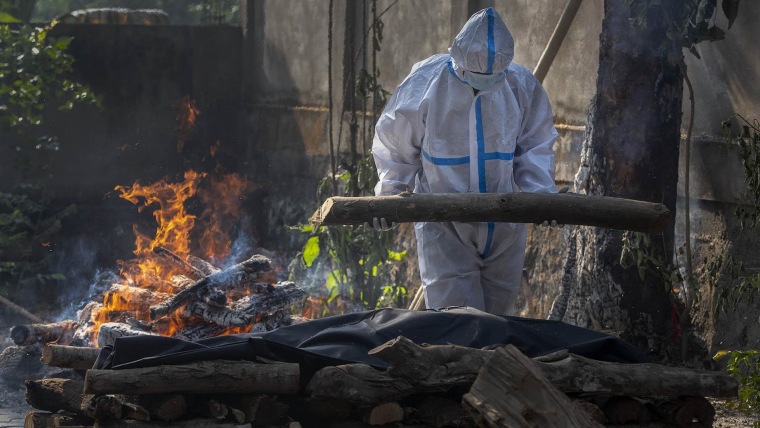
India passed 200,000 Covid-19 deaths Wednesday, becoming only the fourth country to do so, as it battles a devastating second wave of infections.
The surge in new infections has stretched hospitals across the country to a breaking point, with widespread shortages of medical oxygen and beds. Patients and their loved ones desperately search for hospitals with intensive care units that can make room for them, turning to social media to find access to vacant beds and oxygen online.
Increased infections are not only overwhelming the hospitals, but also crematoriums which are running out of space. Funerals are being held in nearby parks, parking lots and other temporary cremation grounds — images of bodies burning on rows of funeral pyres have been seen around the world.
India, the world’s second most populous country, reported 360,960 new Covid infections on Tuesday, again breaking a record for the highest single-day figure globally, according to data from the Indian Ministry of Health. Overall India has recorded 17.9 million cases, second only to the United States with more than 32 million cases.
Tuesday was also India’s deadliest day of the pandemic so far, with 3,293 deaths. Experts fear the official tally vastly underestimates the real death toll in a nation of over 1.35 billion people.
“It is supremely contagious and those who are contracting it are not able to recover as swiftly. In these conditions, intensive care wards are in great demand,” Delhi Chief Minister Arvind Kejriwal said in an online media briefing Tuesday.
Dr. Siddharth Sridhar, a clinical virologist from the University of Hong Kong’s Department of Microbiology, told NBC News that the spike in cases can be attributed to a very unfortunate combination of events.
“You had very large public events going forward both in terms of election rallies as well as religious gatherings,” he said.
“When you have that number of people coming together with evidence that mask-wearing and social distancing not being followed, it would really serve as an impetus for transmission.”
Dr. Sridhar added that there is some uncertainty surrounding the new variant of the virus being increasingly detected in some parts of India, but it is hard to say how much that contributes over and above the human factors of large crowds gathering together with limited infection control measures.
Download the NBC News app for breaking news and politics
In the past month, India has seen mass gatherings in religious congregations like the weeks-long Kumbh Mela in Haridwar as well as in the assembly elections in the state of West Bengal.
Indian Prime Minister Narendra Modi and his Bhartiya Janata Party received criticism for a slow and bungled response to the second wave of infections in the country, including complacency towards mass gatherings.
With cases spiking, Modi tweeted that he chaired a meeting Monday to review the availability of medical infrastructure in the country, in particular, combatting oxygen shortages and ramping up availability of beds and ICUs.
Countries around the world are also rallying to offer India critical aid.
Senior U.S. officials pledged on Tuesday to provide sustained support to India in helping it deal with the crisis, according to Reuters, adding that President Joe Biden said to Modi on a call Monday: “You let me know what you need and we will do it.”
The World Health Organization is also sending supplies and staff to support India in fighting the pandemic, said WHO chief Tedros Adhanom in a briefing on Monday, according to Reuters.
Britain’s Prince Charles, the heir to Queen Elizabeth II, shared a message of support on Wednesday. “As India has helped others, so now must we help India,” he said.

No comments:
Post a Comment